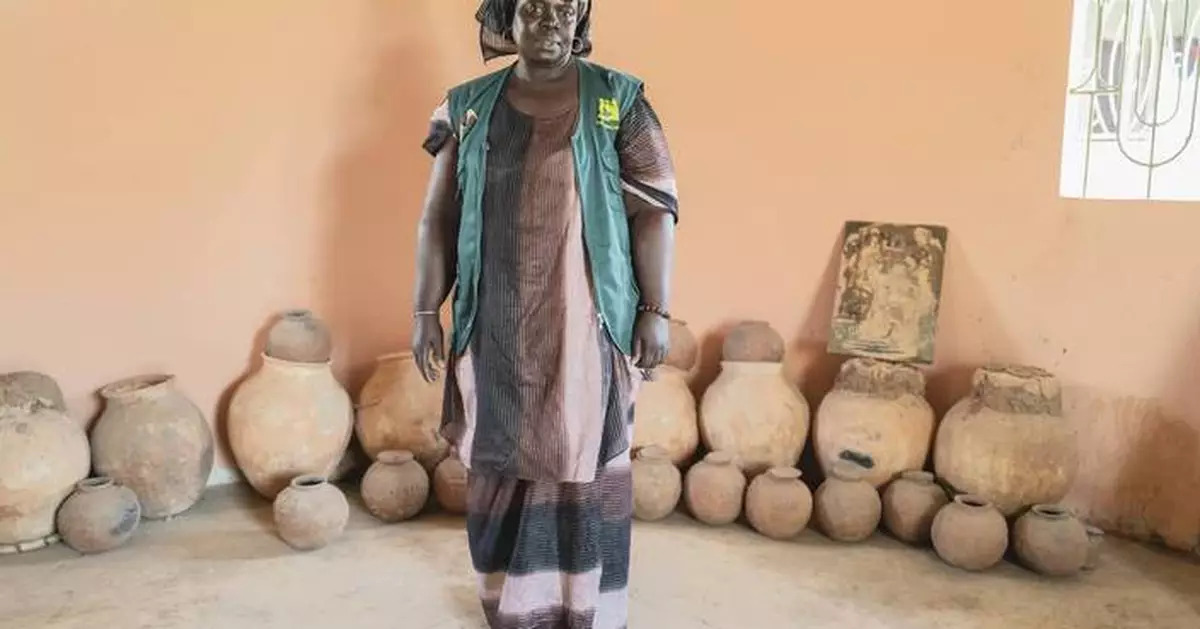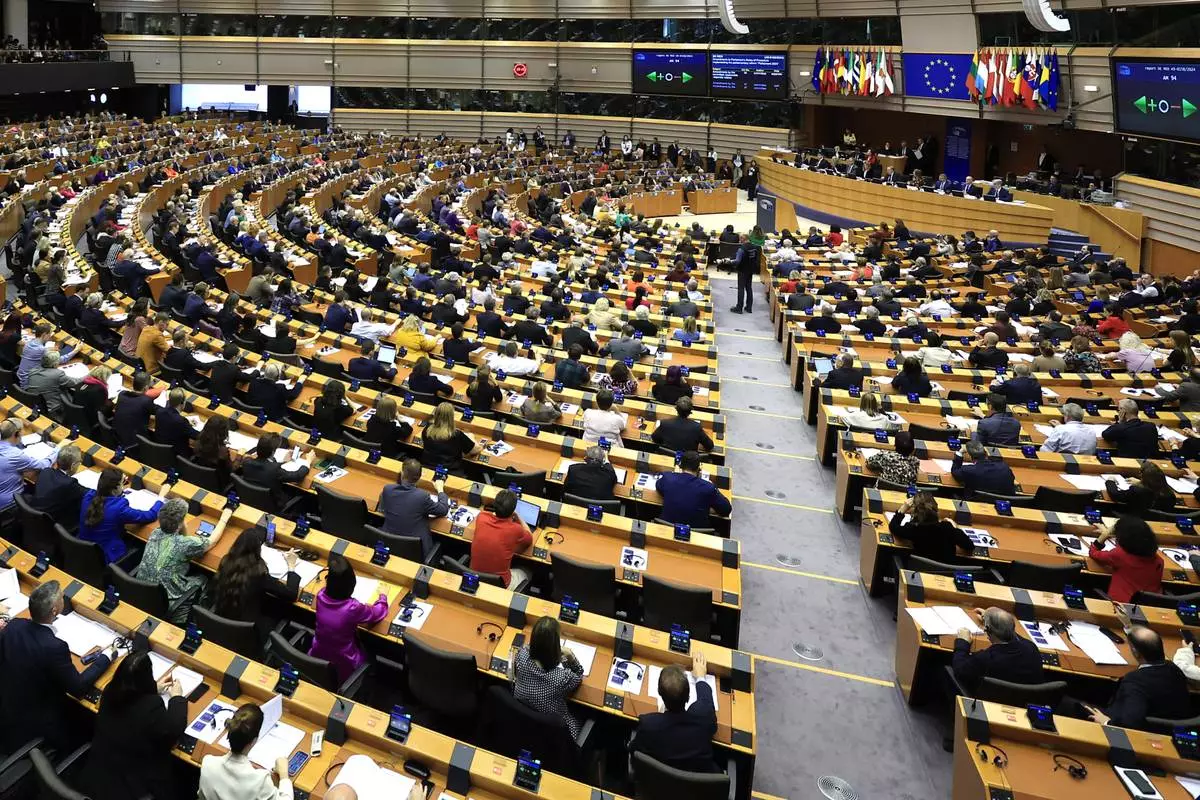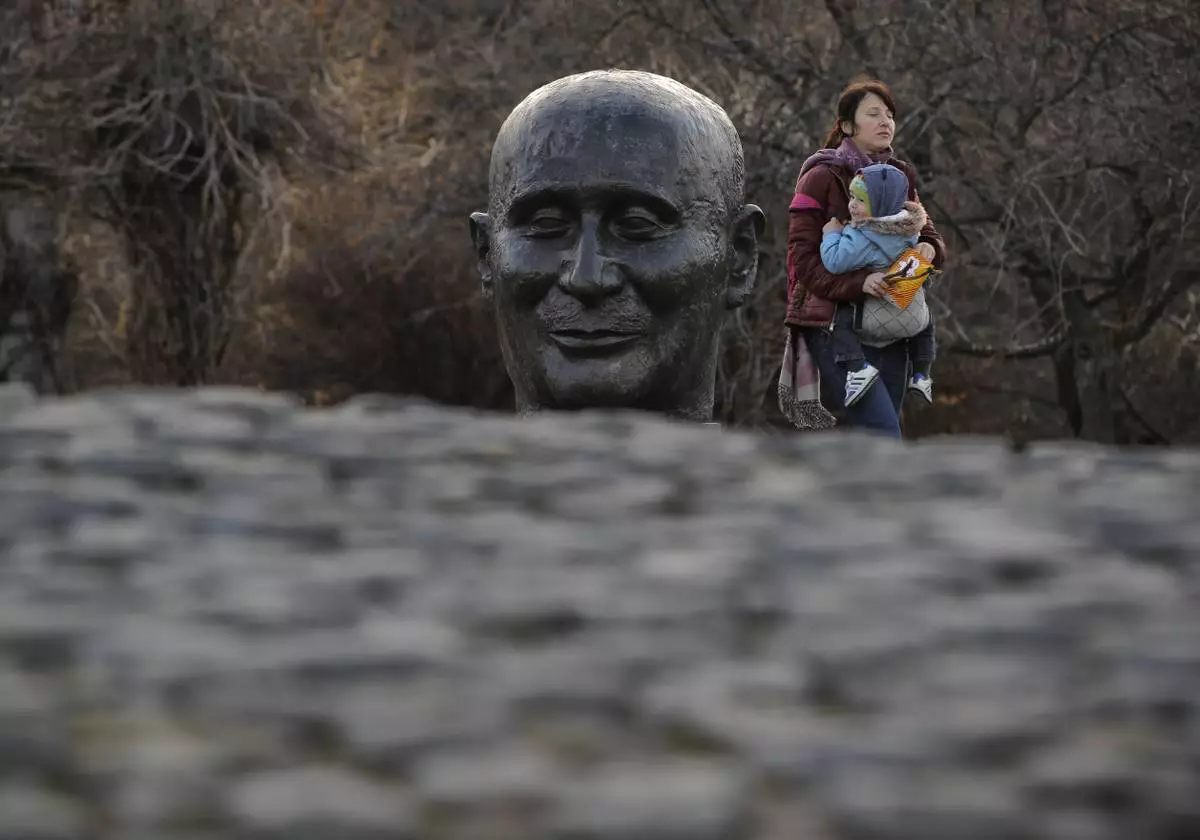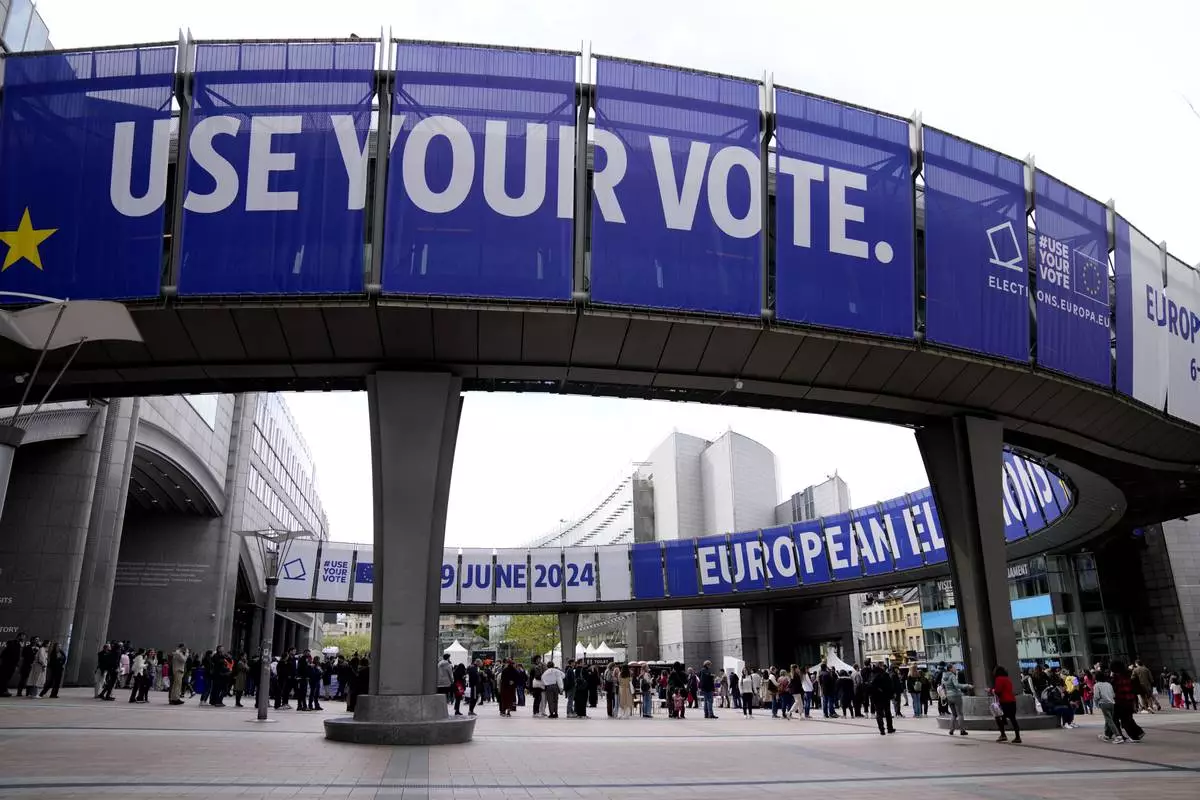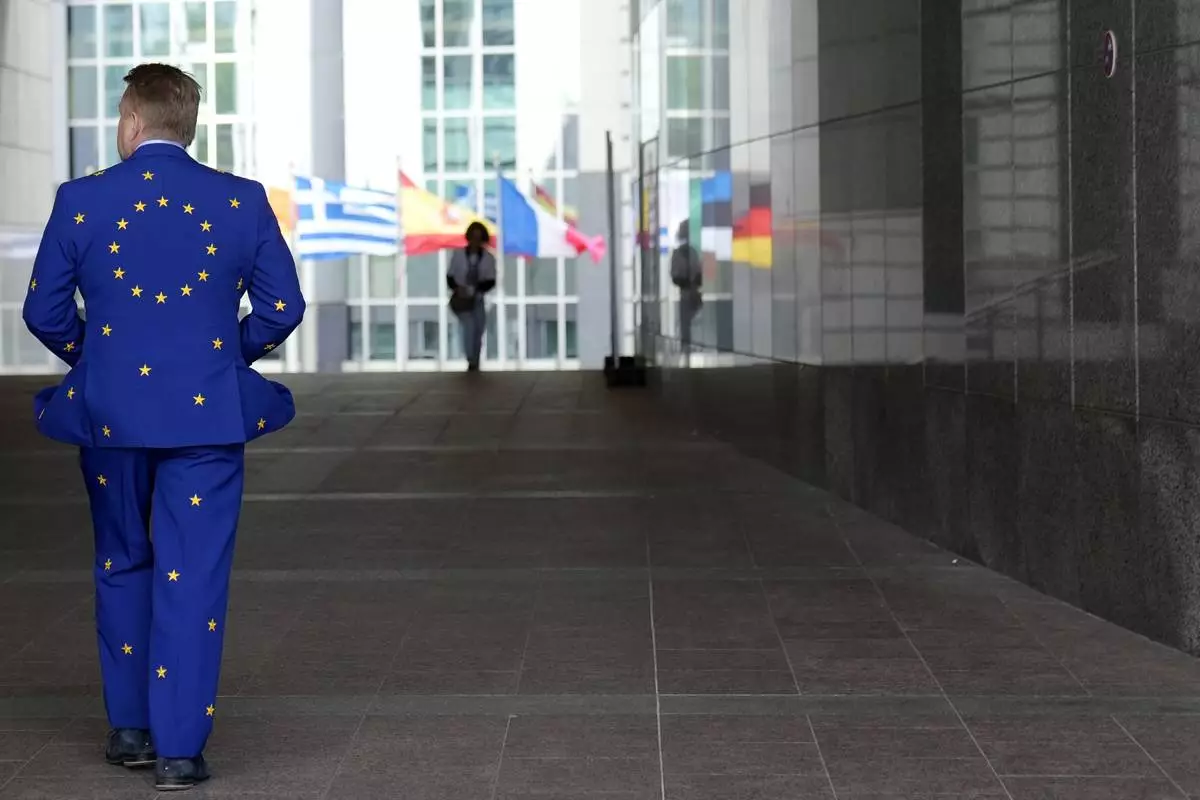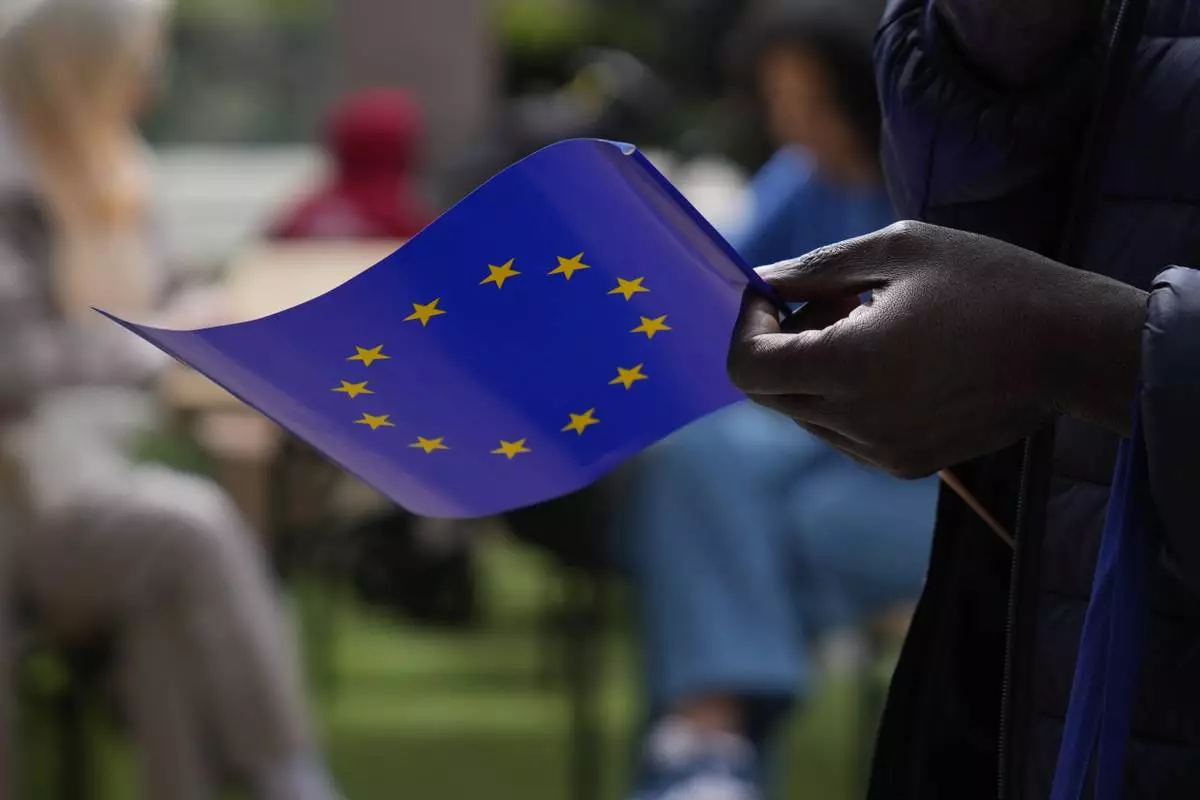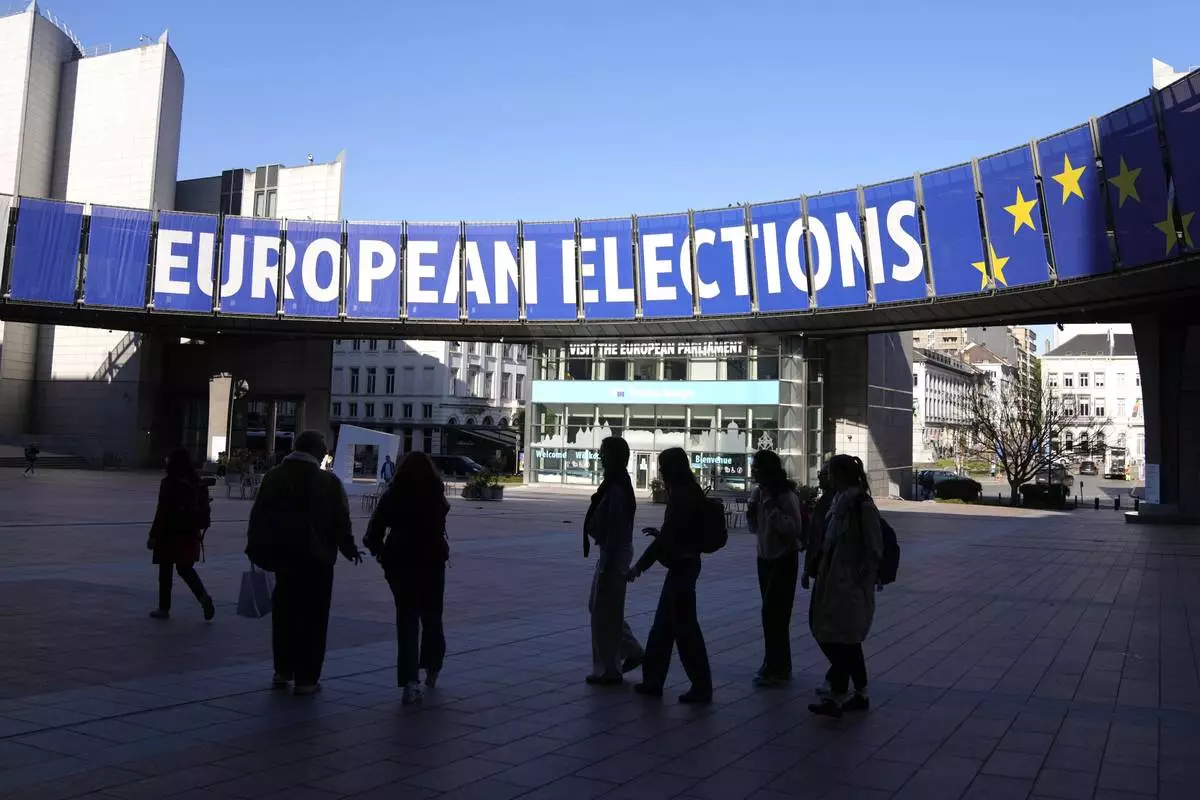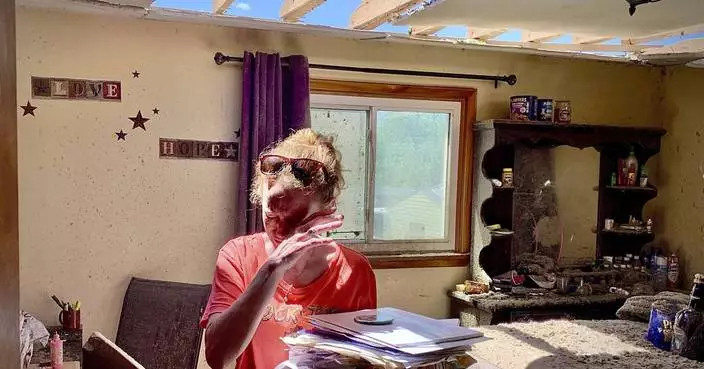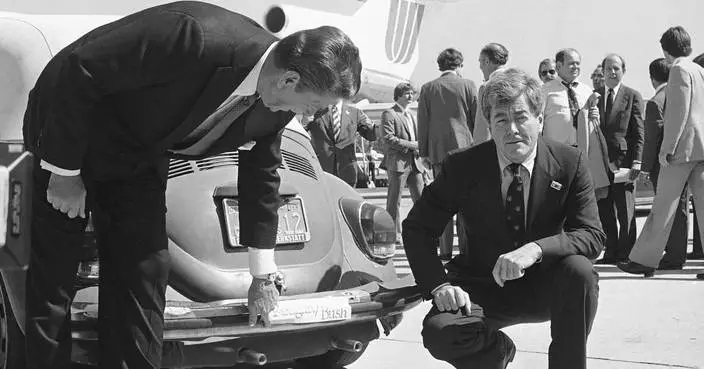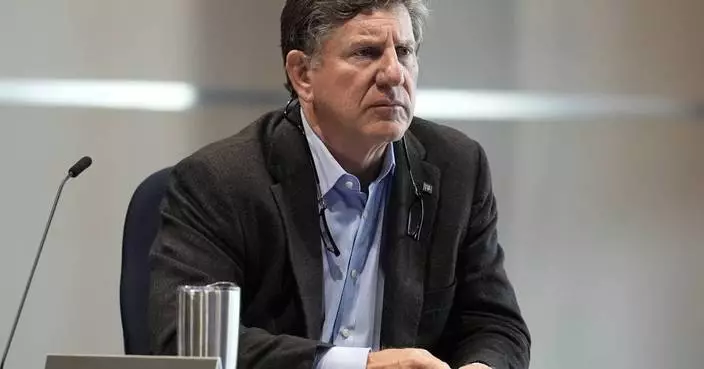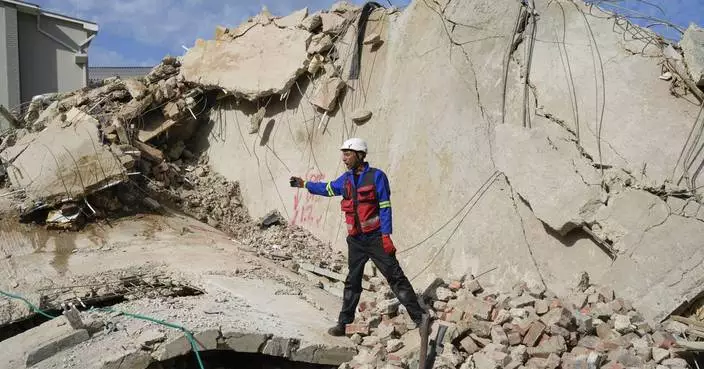ZIGUINCHOR, Senegal (AP) — Mariama Sonko’s voice resounded through the circle of 40 women farmers sitting in the shade of a cashew tree. They scribbled notes, brows furrowed in concentration as her lecture was punctuated by the thud of falling fruit.
This quiet village in Senegal is the headquarters of a 115,000-strong rural women’s rights movement in West Africa, We Are the Solution. Sonko, its president, is training female farmers from cultures where women are often excluded from ownership of the land they work so closely.
Across Senegal, women farmers make up 70% of the agricultural workforce and produce 80% of the crops but have little access to land, education and finance compared to men, the United Nations says.
“We work from dawn until dusk, but with all that we do, what do we get out of it?” Sonko asked.
She believes that when rural women are given land, responsibilities and resources, it has a ripple effect through communities. Her movement is training women farmers who traditionally have no access to education, explaining their rights and financing women-led agricultural projects.
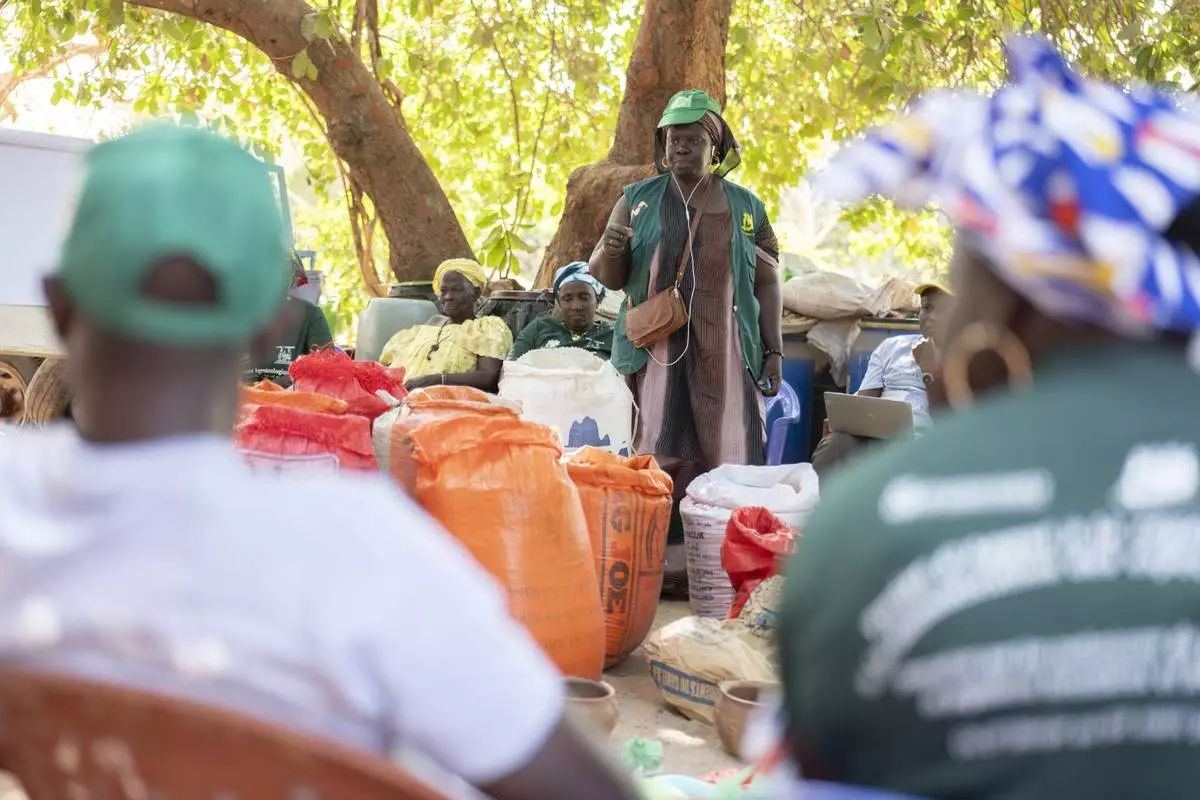
Mariama Sonko and other members of the "Nous Sommes la Solution" (We Are the Solution) movement take a census of the different varieties of rice grown in the Casamance village of Niaguis, Senegal, Wednesday, March 7, 2024. This quiet village in Senegal is the headquarters of a 115,000-strong rural women's rights movement in West Africa, We Are the Solution. Sonko, its president, is training female farmers from cultures where women are often excluded from ownership of the land they work so closely. (AP Photo/Sylvain Cherkaoui)
Across West Africa, women usually don’t own land because it is expected that when they marry, they leave the community. But when they move to their husbands’ homes, they are not given land because they are not related by blood.
Sonko grew up watching her mother struggle after her father died, with young children to support.
“If she had land, she could have supported us,” she recalled, her normally booming voice now tender. Instead, Sonko had to marry young, abandon her studies and leave her ancestral home.
After moving to her husband’s town at age 19, Sonko and several other women convinced a landowner to rent to them a small plot of land in return for part of their harvest. They planted fruit trees and started a market garden. Five years later, when the trees were full of papayas and grapefruit, the owner kicked them off.
The experience marked Sonko.
“This made me fight so that women can have the space to thrive and manage their rights,” she said. When she later got a job with a women's charity funded by Catholic Relief Services, coordinating micro-loans for rural women, that work began.
“Women farmers are invisible,” said Laure Tall, research director at Agricultural and Rural Prospect Initiative, a Senegalese rural think tank. That's even though women work on farms two to four hours longer than men on an average day.
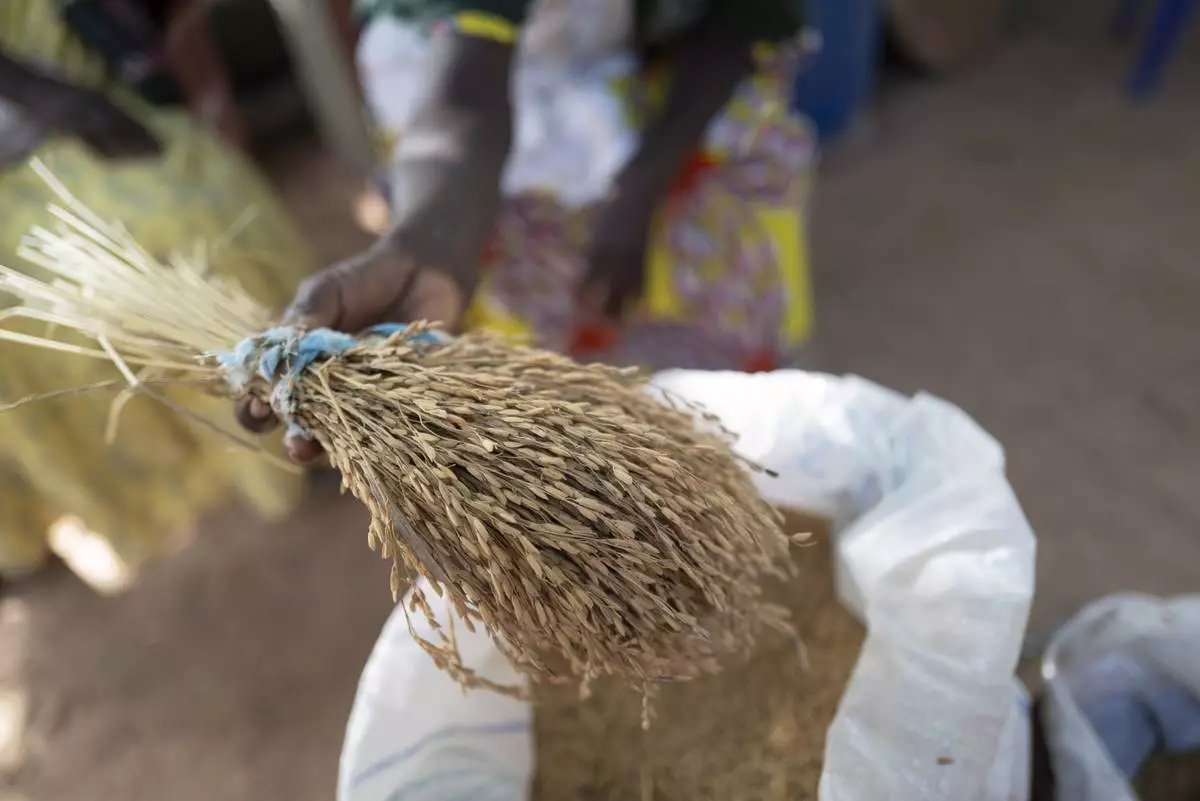
Mariama Sonko and other members of the "Nous Sommes la Solution" (We Are the Solution) movement take a census of the different varieties of rice grown in the Casamance village of Niaguis, Senegal, Wednesday, March 7, 2024. This quiet village in Senegal is the headquarters of a 115,000-strong rural women's rights movement in West Africa, We Are the Solution. Sonko, its president, is training female farmers from cultures where women are often excluded from ownership of the land they work so closely. (AP Photo/Sylvain Cherkaoui)
But when women earn money, they reinvest it in their community, health and children’s education, Tall said. Men spend some on household expenses but can choose to spend the rest how they please. Sonko listed common examples like finding a new wife, drinking and buying fertilizer and pesticides for crops that make money instead of providing food.
With encouragement from her husband, who died in 1997, Sonko chose to invest in other women. Her training center now employs over 20 people, with support from small philanthropic organizations such as Agroecology Fund and CLIMA Fund.
In a recent week, Sonko and her team trained over 100 women from three countries, Senegal, Guinea-Bissau and Gambia, in agroforestry – growing trees and crops together as a measure of protection from extreme weather – and micro gardening, growing food in tiny spaces when there is little access to land.
One trainee, Binta Diatta, said We Are the Solution bought irrigation equipment, seeds, and fencing — an investment of $4,000 — and helped the women of her town access land for a market garden, one of more than 50 financed by the organization.
When Diatta started to earn money, she said, she spent it on food, clothes and her children’s schooling. Her efforts were noticed.
“Next season, all the men accompanied us to the market garden because they saw it as valuable,” she said, recalling how they came simply to witness it.
Now another challenge has emerged affecting women and men alike: climate change.
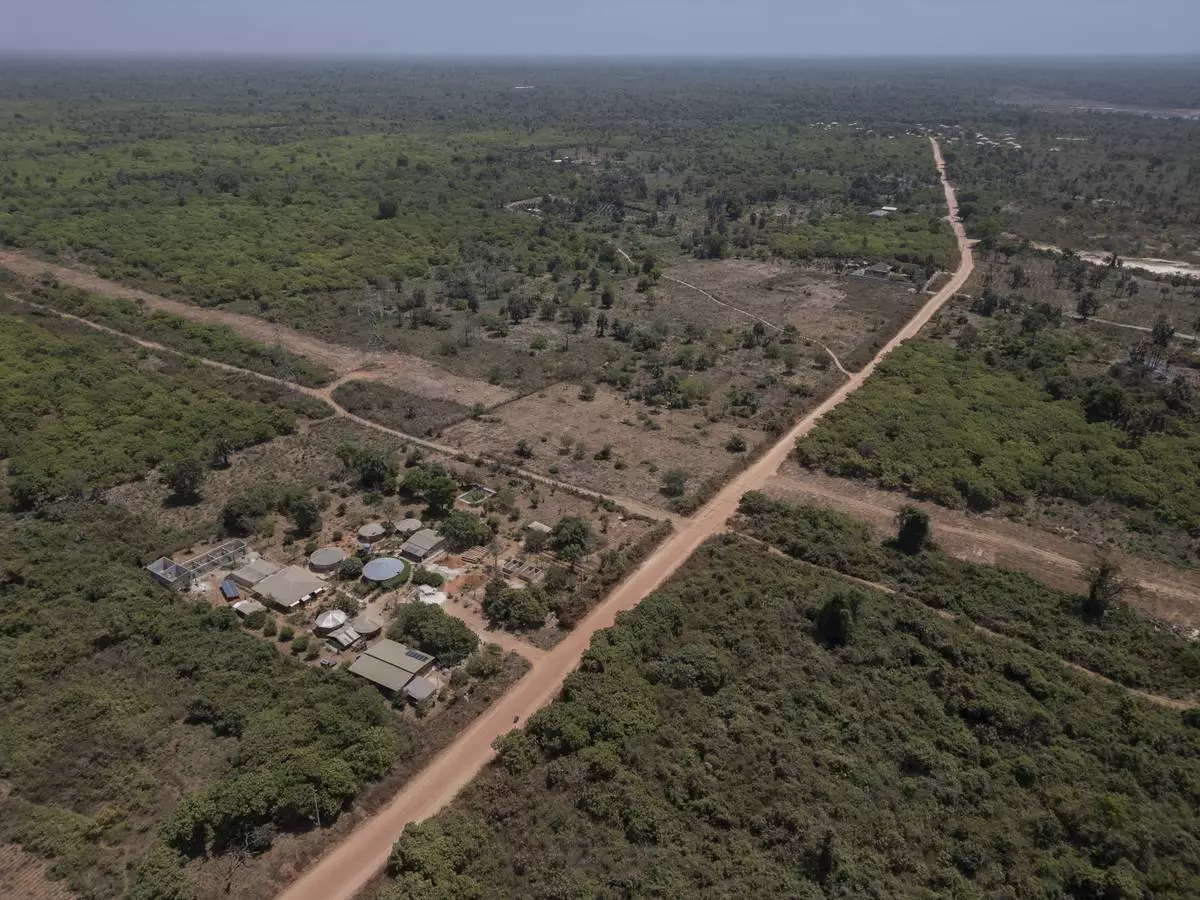
This is an aerial view of Mariama Sonko's agro-ecological training center in the Casamance village of Niaguis, Senegal, Wednesday, March 7, 2024. This quiet village in Senegal is the headquarters of a 115,000-strong rural women's rights movement in West Africa, We Are the Solution. Sonko, its president, is training female farmers from cultures where women are often excluded from ownership of the land they work so closely. (AP Photo/Sylvain Cherkaoui)
In Senegal and the surrounding region, temperatures are rising 50% more than the global average, according to the Intergovernmental Panel on Climate Change, and the UN Environment Program says rainfall could drop by 38% in the coming decades.
Where Sonko lives, the rainy season has become shorter and less predictable. Saltwater is invading her rice paddies bordering the tidal estuary and mangroves, caused by rising sea levels. In some cases, yield losses are so acute that farmers abandon their rice fields.
But adapting to a heating planet has proven to be a strength for women since they adopt climate innovations much faster than men, said Ena Derenoncourt, an investment specialist for women-led farming projects at agricultural research agency AICCRA.
“They have no choice because they are the most vulnerable and affected by climate change,” Derenoncourt said. “They are the most motivated to find solutions.”
On a recent day, Sonko gathered 30 prominent women rice growers to document hundreds of local rice varieties. She bellowed out the names of rice – some hundreds of years old, named after prominent women farmers, passed from generation to generation – and the women echoed with what they call it in their villages.
This preservation of indigenous rice varieties is not only key to adapting to climate change but also about emphasizing the status of women as the traditional guardians of seeds.
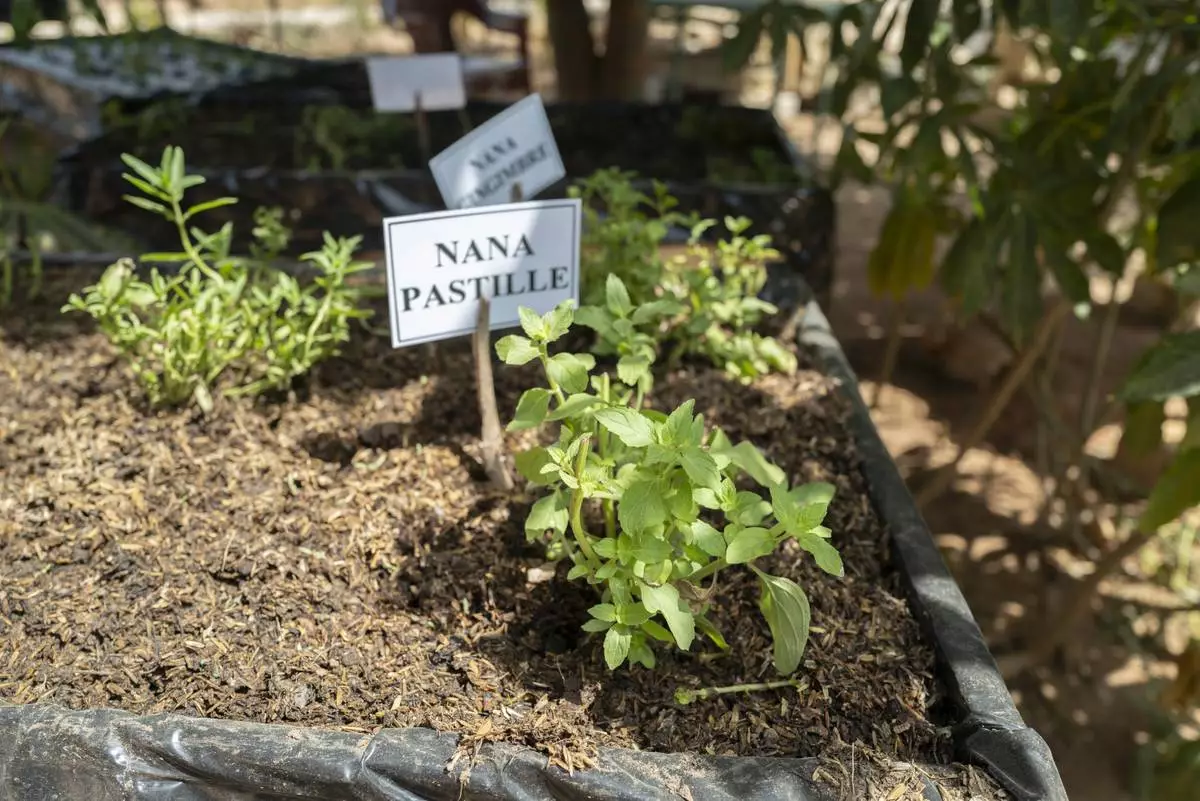
Plants grow at Mariama Sonko's agro-ecological training center in the Casamance village of Niaguis, Senegal, Wednesday, March 7, 2024. This quiet village in Senegal is the headquarters of a 115,000-strong rural women's rights movement in West Africa, We Are the Solution. Sonko, its president, is training female farmers from cultures where women are often excluded from ownership of the land they work so closely. (AP Photo/Sylvain Cherkaoui)
“Seeds are wholly feminine and give value to women in their communities,” Sonko said. “That’s why we’re working on them, to give them more confidence and responsibility in agriculture.”
The knowledge of hundreds of seeds and how they respond to different growing conditions has been vital in giving women a more influential role in communities.
Sonko claimed to have a seed for every condition including too rainy, too dry and even those more resistant to salt for the mangroves.
Last year, she produced 2 tons of rice on her half-hectare plot with none of the synthetic pesticides or fertilizer that are heavily subsidized in Senegal. The yield was more than double that of plots with full use of chemical products in a 2017 U.N. Food and Agriculture Organization project in the same region.
“Our seeds are resilient,” Sonko said, sifting through rice-filled clay pots designed to preserve seeds for decades. “Conventional seeds do not resist climate change and are very demanding. They need fertilizer and pesticides.”
The cultural intimacy between female farmers, their seeds and the land means they are more likely to shun chemicals harming the soil, said Charles Katy, an expert on indigenous wisdom in Senegal who is helping to document Sonko’s rice varieties.
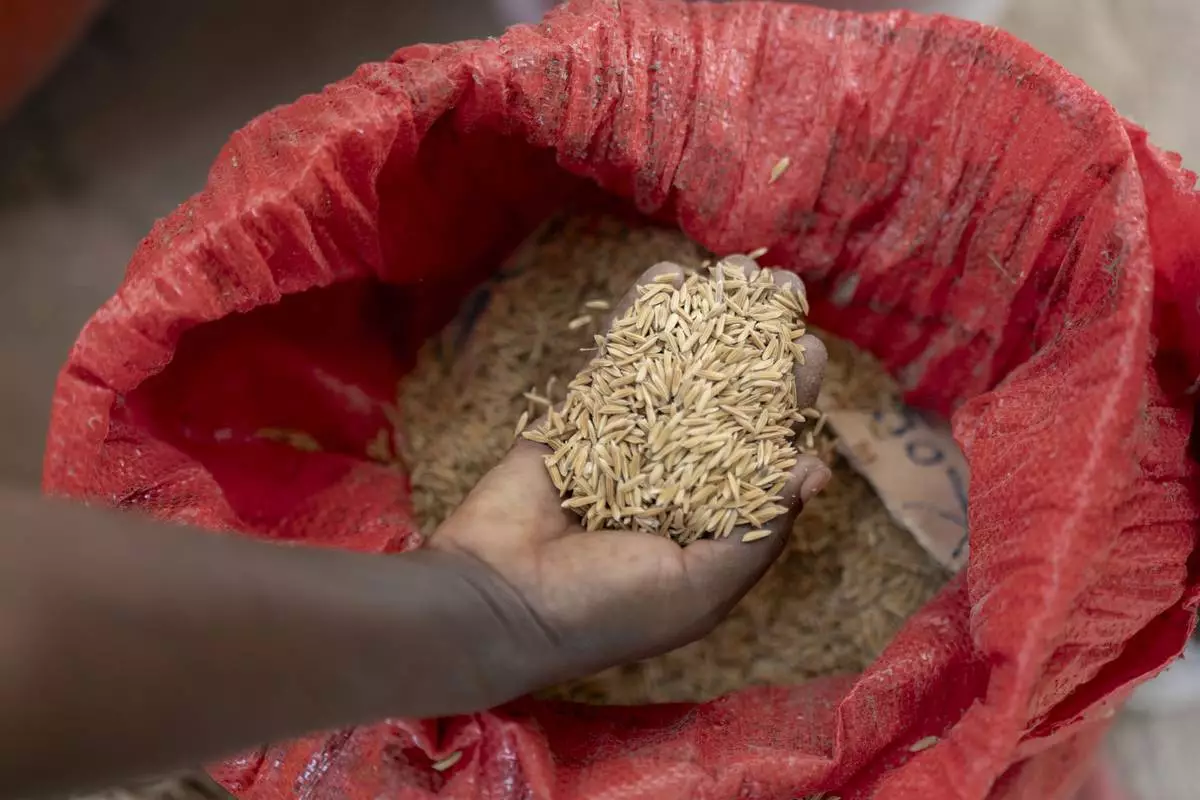
Mariama Sonko and other members of the "Nous Sommes la Solution" (We Are the Solution) movement take a census of the different varieties of rice in the Casamance village of Niaguis, Senegal, Wednesday, March 7, 2024. This quiet village in Senegal is the headquarters of a 115,000-strong rural women's rights movement in West Africa, We Are the Solution. Sonko, its president, is training female farmers from cultures where women are often excluded from ownership of the land they work so closely.(AP Photo/Sylvain Cherkaoui)
He noted the organic fertilizer that Sonko made from manure, and the biopesticides made from ginger, garlic and chilli.
One of Sonko’s trainees, Sounkarou Kébé, recounted her experiments against parasites in her tomato plot. Instead of using manufactured insecticides, she tried using a tree bark traditionally used in Senegal’s Casamance region to treat intestinal problems in humans caused by parasites.
A week later, all the disease was gone, Kébé said.
As dusk approached at the training center, insects hummed in the background and Sonko prepared for another training session. “There’s too much demand,” she said. She is now trying to set up seven other farming centers across southern Senegal.
Glancing back at the circle of women studying in the fading light, she said: “My great fight in the movement is to make humanity understand the importance of women.”
The Associated Press receives financial support for global health and development coverage in Africa from the Bill & Melinda Gates Foundation Trust. The AP is solely responsible for all content. Find AP’s standards for working with philanthropies, a list of supporters and funded coverage areas at AP.org.
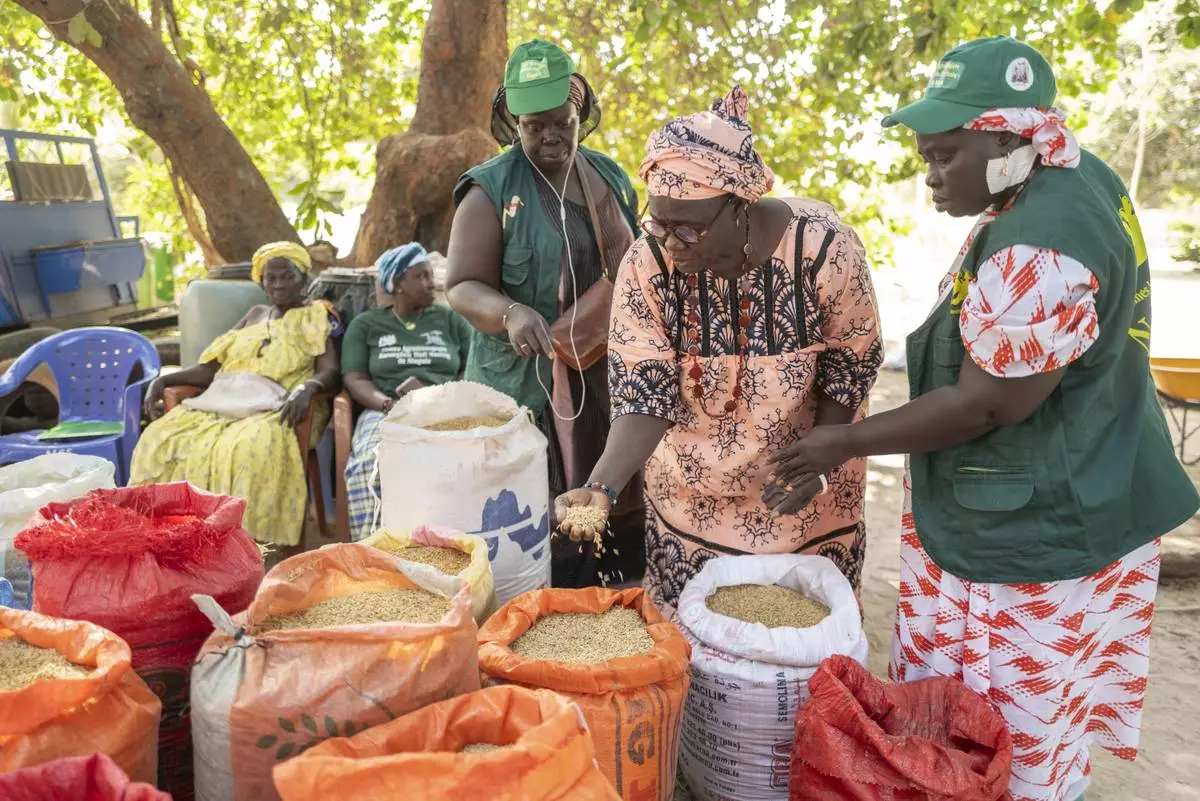
Mariama Sonko and other members of the "Nous Sommes la Solution" (We Are the Solution) movement take a census of the different varieties of rice in the Casamance village of Niaguis, Senegal, Wednesday, March 7, 2024. This quiet village in Senegal is the headquarters of a 115,000-strong rural women's rights movement in West Africa, We Are the Solution. Sonko, its president, is training female farmers from cultures where women are often excluded from ownership of the land they work so closely.(AP Photo/Sylvain Cherkaoui)
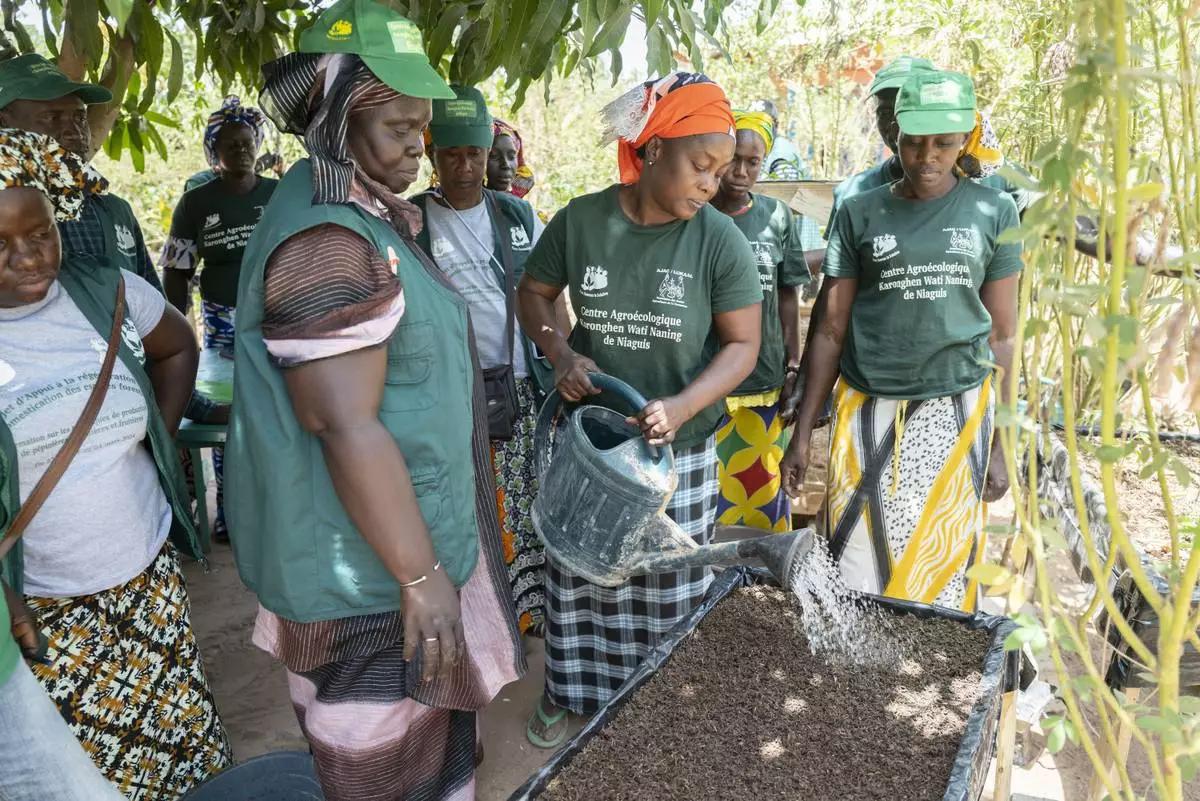
Mariama Sonko and other members of the "Nous Sommes la Solution" movement take part in a lemon balm pecking workshop in the Casamance village of Niaguis, Senegal, Wednesday, March 7, 2024. This quiet village in Senegal is the headquarters of a 115,000-strong rural women's rights movement in West Africa, We Are the Solution. Sonko, its president, is training female farmers from cultures where women are often excluded from ownership of the land they work so closely. (AP Photo/Sylvain Cherkaoui)
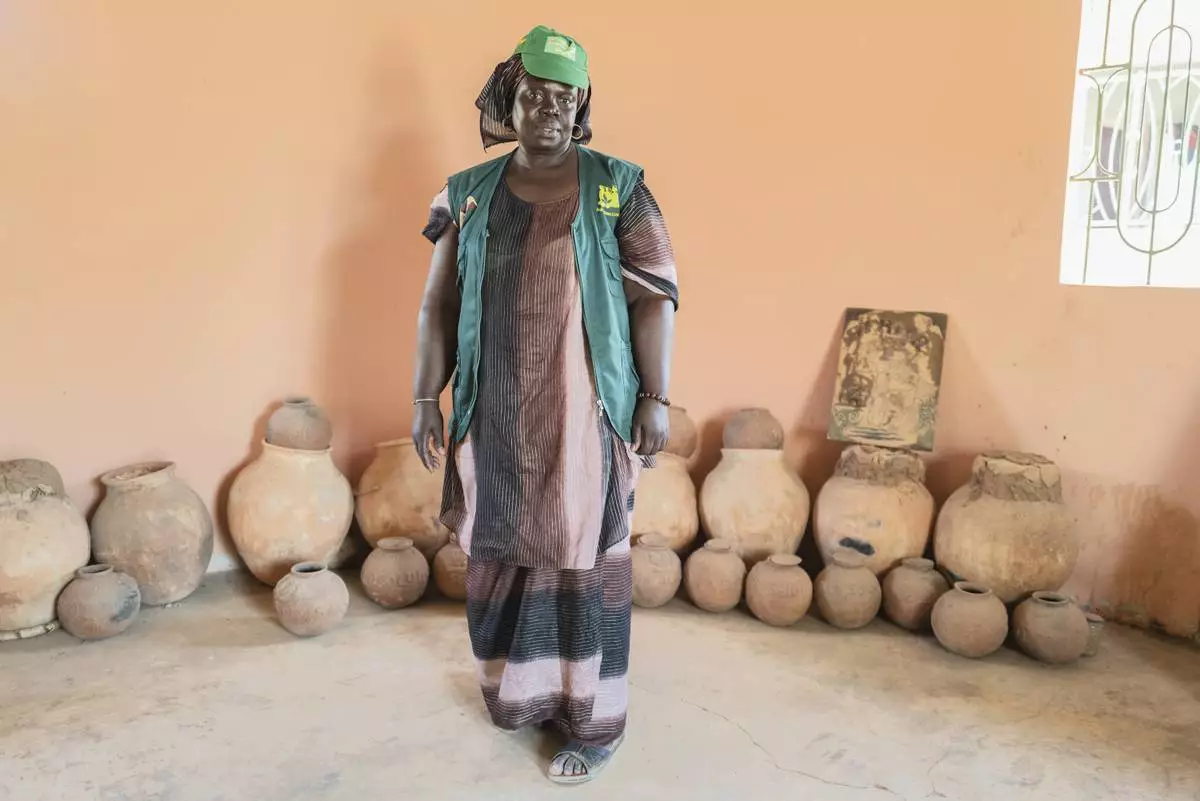
Mariama Sonko Mariama Sonko poses in the seed hut of her agro-ecological training center in the Casamance village of Niaguis, Senegal, Wednesday, March 7, 2024. This quiet village in Senegal is the headquarters of a 115,000-strong rural women's rights movement in West Africa, We Are the Solution. Sonko, its president, is training female farmers from cultures where women are often excluded from ownership of the land they work so closely. (AP Photo/Sylvain Cherkaoui)


